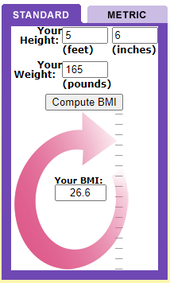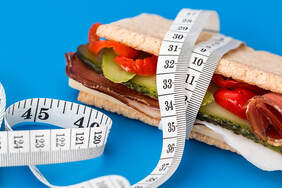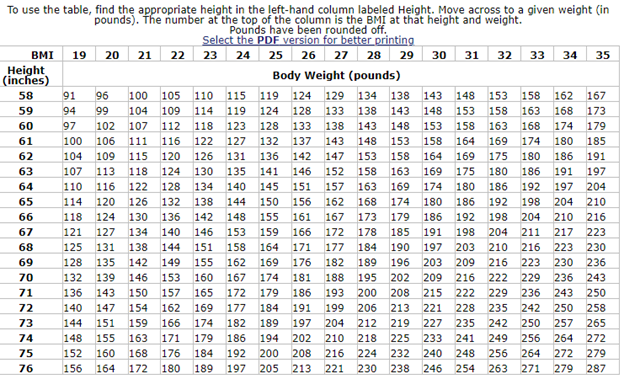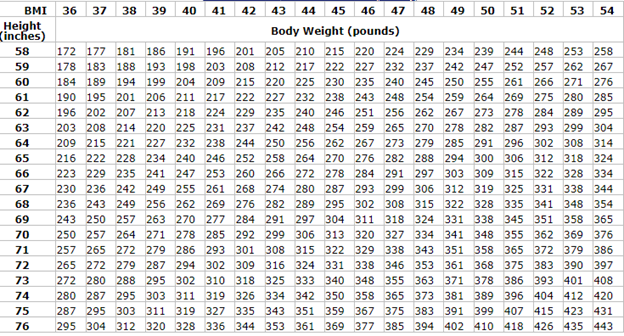|
We all have had those moments where we feel like we could run a marathon. We are so full of energy and life that nothing seems impossible. Unfortunately, these moments are often fleeting, and we can find ourselves struggling to summon the same level of energy day after day. This is where self-renewal comes in. Self-renewal is the process of recharging your physical, mental, and emotional batteries so that you can approach each day with enthusiasm and vitality. When you take the time to renew yourself on a regular basis, you will find that you have the energy and drive to live your best life and be your best self. Here are some ways you can continue incorporating self-renewal into your daily life. 1. Get Enough Sleep Most people need around eight hours of sleep per night in order to function at their best during the day. If you find yourself frequently tired or reliant on caffeine to get through the day, chances are you are not getting enough restful sleep. Experiment with different bedtimes and wake-up times until you find a sleep schedule that works for you and stick to it as much as possible. You will be amazed at how much better you feel when you are well-rested! Experiment with power naps as well. If you are feeling tired, taking a quick 20-30 minute nap can help refresh your mind and body. Just be careful not to nap for too long, as this can make it harder to fall asleep at night. You can even try taking a power nap at work. Taking power naps at work can be a great way to refresh your mind and increase your energy levels during the day. However, when taking a power nap at work make sure you follow company policy on this matter. Many employers are recognizing the importance of sleep as a productivity and safety measure and are building sleep pods and quiet rooms for over-tired employees. Even if employers are open to power naps at work, this does not excuse you from getting a good night’s sleep on your own. As mentioned above sleep is an important ingredient for your health and well-being. On the other hand, employers should not use their power nap policy as an abusive productivity measure. If power naps are acceptable at your places of work here are some tips for making them effective.
By following these tips, you can take effective power naps at work and increase your productivity and energy levels throughout the day. 2. Eat healthily What we put into our bodies has a direct impact on how we feel both physically and mentally. When we fuel our bodies with nutritious food, we give ourselves the energy we need to power through our days. Remember though, processed foods and sugary snacks may give us a quick burst of energy, but it is quickly followed by an inevitable crash. Make sure to include plenty of fruits, vegetables, whole grains, and lean protein in your diet for sustained energy throughout the day. Remember as well, that dehydration can cause tiredness and feelings of sluggishness. Drinking plenty of water throughout your day can help you feel energized and alert. Water is essential to the proper functioning of our bodies and dehydration can cause a number of negative effects, including fatigue, headaches, and difficulty concentrating. Therefore, drinking enough water throughout the day can help keep you feeling energized and alert. The recommended amount of water intake varies depending on factors such as age, sex, weight, and physical activity level. As a general guideline, the National Academies of Sciences, Engineering, and Medicine recommend that men aim to consume about 3.7 liters (125 ounces) of fluids per day and women aim to consume about 2.7 liters (91 ounces) of fluids per day. In addition to water, you can also consume other hydrating fluids such as herbal tea, coconut water, or fresh juice. However, it's important to limit your intake of beverages that are high in sugar or caffeine, as these can have negative effects on your energy levels. If you find it difficult to drink enough water throughout the day, here are a few tips:
By staying hydrated, you can help keep your body functioning at its best and maintain high levels of energy throughout the day. 3. Get Moving Physical activity is one of the best ways to increase your energy levels. Exercise is not only good for our physical health, but it also benefits our mental health as well. When we get our heart rates up and break a sweat, we release endorphins—the “feel-good” hormones—which can help reduce stress and improve our moods. The type of physical activity you choose doesn’t have to be strenuous to be effective. Even moderate-intensity exercise, such as a brisk walk or gentle yoga, can help boost your energy levels. It’s best to choose an activity you enjoy, as this will make it more likely that you will stick with it. For example, you may enjoy going for a walk outdoors, taking a dance class, or practicing the myriad of different sports out there. Even if you do not have time for a vigorous workout, taking a brisk walk or going for a light jog can do wonders for your energy levels. Just make sure to listen to your body and not overdo it! 4. Take Breaks It is important to take breaks throughout the day in order to rejuvenate ourselves both mentally and physically. When we push ourselves too hard without taking any time to relax, we can quickly become overwhelmed, stressed out, and burnt out. Make sure to schedule some “me” time every day—even if it is just 20 minutes! Use this time to do something calming, such as reading a book, taking a bath, or meditating. You will be amazed at how refreshed you feel after taking some time for yourself. Taking breaks at work is important for maintaining productivity and energy levels throughout the day. Here are some ways to effectively take breaks at work:
By taking regular breaks throughout the day, you can help maintain high levels of productivity and energy and reduce stress and burnout. Final Thoughts By incorporating daily self-renewal routines into your life, you will give yourself the opportunity to approach each day with enthusiasm and vitality. When you make your well-being a priority, you will find that you have the energy and drive to live your best life and be your best self! Try implementing some of the tips above into your daily life and see how much better you feel! Thank you for reading and stay safe, keep healthy, and remember to continue becoming the best version of yourself. Richard Richard Fontanie
0 Comments
 Being overweight or underweight puts you at risk for chronic diseases, health conditions, and potential falls and fractures. Doctors determine weight based on your Body Mass Index (BMI). Your BMI is a calculation of your body fat based on your height and weight. According to the Centers for Disease Control (CDC), your weight status is determined by your BMI. The levels of weight status are: BMI Weight Status
Researchers have determined that a BMI of 25 or more is a risk for chronic disease and poor health. To maintain a healthy weight, the CDC recommends that your diet contains:
Lean protein sources include fish, poultry, eggs, legumes, and soy products. Low-fat foods should be low in saturated and trans-fat and cholesterol. Talk with your doctor about how many calories you need every day and plan your diet within that allowance. To determine your BMI status check the chart below and if you would like a PDF version let me know in the comments below and I will send one to you. In a previous article I provided 11 unhealthy eating patterns and made suggestions for eating in a more wholesome way. Now the problem may not be with what you are eating, but with how much you’re eating - or not eating. Most of us really do not know how many servings of fruits and vegetables we’re supposed to eat on a daily basis. And if you do know, then you may not know how much of each type is in a serving. Here are a few examples:
While it may sound tricky, it is actually isn’t once you get the hang of the science behind it. And here are four tips to help you out. Think Ahead Washing, draining, and cutting your food in advance is a great time-saver. Plus, it’ll stop any excuse you have from grabbing that comfort food, like a cookie, dead in its tracks. Once you got that done it’ll be easier to add some chopped broccoli to your omelets, or a handful of berries to your yogurt or pancake batter. This also makes it easier to roast vegetables, giving them a quick stir in some oil, a bit of seasoning and heat pumps up their flavor and, in some cases, even enhances their nutritional values. You can roast almost all vegetables either in the oven or on your stove top. And you can even mix and match, and create your own, unique healthy recipes. One of our favorite dishes is to stir fry vegies with chicken or left over roast pieces. Add a small portion of rice on the side or pour the mixture over the rice and you have a quick and easy yummy meal. Another wonderful way to plan ahead is keep frozen fruits and vegetables on hand. They still retain both their nutritional value and their delicious flavor. The added advantages of having frozen food stuffs available are that they are already prepared, ready to go, and available whenever you need them. Enjoy a Salad Compliment your lunch or dinner meal with a salad. Salads may be the most versatile meals ever developed. You can do classic salads or add protein like chicken or tuna; you can add beans, chickpeas, corn - whatever your taste buds desire. You can also add nuts, fruits, and vegies to your salad. There is nothing like a plate salad with leavy greens, toped with strawberries, blueberries, mixed nuts, and sliced left-over chicken. A really healthy meal in itself. However, watch what you use for dressing as some of them are too creamy and filled with salt. Use a simple dressing such as Italian or my favourite - a splashing of Amoretto liqueur. Salads are also a great lunch alternative as they are lower in calories while still filling you up while at the same time reducing the risk of late afternoon tiredness. This is so because salads contain ingredients that are loaded with fiber, vitamins and minerals that keep your metabolism going longer while boosting concentration and energy levels. And Then There Is Dessert The trick here is to have that sumptuous dessert without blowing your diet to heck. It seems we all crave something sweet after each meal (and in-between them) because our blood sugar levels drop at certain times during the day. Rather than going for that candy bar or bucket of ice-cream, grab a bit of fruit or raw vegies which will fill you with fiber, vitamins, minerals. This will bring your craving to a halt plus it will improve your focus and sharpness during the afternoon, as opposed to that drowsy feeling that comes over us when we’re drained and feel out of sorts. You can cut up several types of fruit to make a fruit salad or put them in a blender to make a smoothie. You can have a different type of desert for every day of the week that will satisfy your sweet tooth without piling on the calories. Does that mean you can’t have a piece of pie after a meal. Absolutely not. However, watch how big of slice you have – a quarter of a pie is too much, cut the quarter in half or thirds and you are looking at better portion. And, if you are having apple pie reduce the ice cream scope to half. The best thing you can do for your health is to find the right amounts that suit your needs. Your gender, age, whether you lead an active or a more sedentary lifestyle are all factors that determine how much you should eat. Here Comes The Meat Meat adds protein to your diet and most people enjoy it with there meals. Vegetarians need protein as well, but they get it from other sources – a topic for another article. Remember too much red meat is hard on the heart. We don’t need a whole steak or four thick slices of roast beef for example. The best way to calculate meat portions is to measure them against the palm of your hand. Make the meat portion as big as the palm of your hand. This way you wont eat the whole steak and maybe you will have enough for two people or save some for another day with your salad. Conclusion The bottom line is that you can keep your BMI in check by eating balanced meals and proper foods. One method of keeping that balance and mix of foods is using the Mediterranean Diet Plan (See my Review here) The Mediterranean Diet is a way to consume healthy foods in the traditional style of countries bordering the Mediterranean Sea. The diet traditionally consists of the region’s fruits, vegetables, beans, nuts, seafood, olive oil and dairy. Ah, and “la pièce de résistance” of any meal is a pleasant glass of wine or two. However, the Mediterranean Diet is more than just delicious and wholesome food. For it to have an impact on your mood and your mental and physical health you will need to keep up with your regular physical activity and socialization especially by sharing your favorite meals with family and friends. If you want to create your own Customized Mediterranean Diet Plan Go Here. Thank you for reading and as always, Stay Safe. Be Well. And become the person you were meant to be. Richard Fontanie Sources for this article
BMI Tables : https://www.nhlbi.nih.gov/health/educational/lose_wt/BMI/bmi_tbl2.htm https://www.health.harvard.edu/staying-healthy/13-ways-to-add-fruits-and-vegetables-to-your-diet https://www.aurorahealthcare.org/patients-visitors/blog/4-easy-ways-to-add-fruits-and-veggies-to-your-diet https://www.thekitchn.com/10-photos-that-show-you-your-daily-recommended-servings-of-fruits-vegetables-207261 https://www.health.harvard.edu/staying-healthy/5-easy-ways-to-add-fruits-and-vegetables-to-dinner https://www.canadianliving.com/health/nutrition/article/how-to-add-more-fruits-and-vegetables-to-your-diet https://fruitsandveggies.org/stories/easy-ways-to-incorporate-fruits-veggies-into-your-day/  Consider a Mediterranean Diet Plan - Click the image to learn more. Consider a Mediterranean Diet Plan - Click the image to learn more. Food is intended for the human body as sustenance and nutrition. That is its only intent. It is meant to give essential nutrients that work to support internal bodily process and feed major organs. It provides us with energy and is essential for the proper physical development of children and keeps adults fit. Somewhere along the way, we have seriously lost touch with this fact. Of course, the endless rows of goodies at the supermarket, and unlimited choices of junk food have not helped us in any way. Healthy eating still eludes many of us, as America struggles with obesity and lifestyle choices are the leading cause of premature death from diseases like that of the heart that result from them. You may be continuing unhealthy eating patterns without even knowing it. You may need another wake-up call around ways you can eat healthier to avoid the complications that come from poor nutrition and poor eating habits. Here 11 signs that indicate you are not engaging in healthy eating habits 1. You Finish Your Meal Before Anyone Else. If you are the first one done eating at the dinner table, you are probably eating mindlessly and are not enjoying your meal in a healthy way. Chomping down your meal within a few minutes can lead to indigestion in seconds, and this in turn can lead to your becoming overweight. Instead, eat more slowly and take part in whatever conversation is going on around the table. Your hormonal signal to turn off eating takes about 20 minutes so if you finish much sooner than that, you will feel hungry even when you have taken in enough calories, which typically results in eating more food than you really need. 2. You Eat Food That Has Been Manufactured In A Food Processing Factory. Instead of cooking with fresh ingredients, you might be choosing to eat pre-processed foods, which are high in preservatives and are often high in salt and/or calories. Take the time to cook a meal with fresh ingredients, which are healthier foods. Find a nice selection of home-prepared meals you can put into your own personal cookbook. When you cook for yourself, you know exactly what has gone into making any meal and you have the peace of mind that comes with knowing what you put into your body. 3l You Shop In The Center Part Of The Grocery Store. If you find yourself going up and down the center aisles of the grocery store, where canned and processed foods reside and less or no time in the periphery of the store that holds fresh produce, meat, and dairy you are eating foods that are high in preservatives, salt and sugar and NOT real whole food. Remember, food that does not need refrigeration is usually processed (except whole grains of course) Spend more time in the produce section of the grocery store because this leads to eating healthier fruits and vegetables instead of eating unhealthy, processed foods. 4. You Eat Right Out Of The Box Or Carton. If you find yourself eating potato chips right out of the bag or ice cream out of the carton, you are probably not eating the right portions of food and will have a tendency to eat more food than you had originally intended to eat. This is a sure fire way to obesity. Instead, portion out your foods onto a plate or bowl so that you stop when that portion is gone and save the rest for another meal. 5. You Eat From The Drive Thru Regularly. Unless you are ordering a salad every time, which most of us don’t, eating from a drive thru regularly is not conducive to good nutrition. Most drive thru restaurants offer fast food, which is greasy, fat filled and lacks any real nutrients. Consider whole food, which is food typically made up one ingredient and unprocessed. Fresh fish, chicken, fruits, vegetables, and whole grains are whole foods, and they are not offered at the drive thru. 6. You Eat In Front Of The TV. When you find yourself drawn toward eating in front of the television, it means you are probably eating mindlessly and not directing your attention to how much you are eating or to the signals your body gives off when you are full. This leads to overeating and obesity. Sit down to your meals and listen to soothing music or to nothing at all. That way you can focus on your meal and not on something else. It seems as one gets older and their children have left home eating in front of the TV is more habit forming. 7. You Eat A Narrow Variety Of Food. If you just eat the same limited amount of food each day, you stand a good chance of missing some key nutrients in your diet. Fill your menu with different foods so that you can be sure to get the nutrients you need. Colorful plates are healthy, filled with many colors of vegetables and fruit for dessert to get key nutrients from plant foods. Look at the USDA’s Food Groups Chart and make sure to choose foods from each group daily, this is the easiest way to ensure you are eating a well-balanced diet. 8. You Eat To Appease Emotions. Emotional eating or overeating is always unhealthy. Mainly this takes place when people are bored, lonely, tired, upset, stressed, or angry. It always occurs when one is not truly hungry but is trying to use food to cover up emotions and the food or foods of choice is always junk food. As cocaine, or other illicit drugs junk food stimulates pleasure centers in the brain because it is loaded with sugar, fat or factory created flavoring that holds no nutritional value. Emotional overeating can be a serious problem that can lead to obesity, depression, guilt, and anxiety over the eating itself. This is one of the most serious unhealthy eating habits and plenty of help is available to address the problem. Unfortunately too many people binge eat or are caught in the trap of gorging themselves and then vomit. If you find you are one of these people please seek help. 9. You Eat Two Or Less Giant Meals Daily. It is much healthier to eat 5 to 7 small meals each day than to eat two or worse yet one large one. When you eat small meals several times per day you keep the metabolism revved and never let your blood sugars drop. When you starve yourself the whole day and then down a big meal, you put yourself at risk for obesity and you will not maintain optimal energy levels you’re your daily activities. This is called grazing and if you watch animals they have this down pat. 10. You Eat More Calories Daily Than You Burn The simple formula for weight management and weight loss is to eat less calories than you burn so to create a deficit. This is true for men and women and becomes even more detrimental as we age, and out metabolism slows naturally. Online calorie calculators can determine how many calories you need to either lose or maintain weight based on your age, weight, and activity level. 11. You Eat In Secret. If you are hiding food, or eating meals in secret so that your spouse, friends or family do not see you, something is wrong. It could be that you have a negative association with your eating habits that you want to keep secret, or you have some guilt or shame attached to eating. In this case, it is important to identify and deal with the issue, a therapist can help. Eating healthy is not difficult if you follow the tips noted above. Healthy eating means eating mindfully and choosing foods that are best for your body. Making Changes The takeaway is simple: Eat To Live… Don’t Live To Eat! It’s really all about choices, and it’s all in our hands. Take the time to evaluate your diet and eating habits. Make the necessary changes before it is too late, as prevention is worth a thousand cures. Make small changes every week, instead of drastic shifts where you will feel the biggest impact. Make a list of all the foods you need to cut down on in your diet and keep cutting one out each week.
Certainly, these efforts are worth your while, as life is too short not to enjoy it. Oh, and before you go check your BMI to see if you are overweight. Being overweight or underweight puts you at risk for chronic diseases, health conditions, and potentials falls and fractures. Doctors determine weight based on your Body Mass Index (BMI). Your BMI is a calculation of your body fat based on your height in inches (centimeters) and weight in pounds (kilos). According to the Centers for Disease Control (CDC), your weight status is determined by your BMI. The levels of weight status are:
You can check your FREE BMI calculation HERE Thank you for reading and remember your personal growth and development matters and as always, Keep safe and Be Well. Richard Fontanie  The title of this article closely resembles one of those pesky pop-up ads on your favorite Internet site, claiming some remarkable fitness solution “in just 30 days!”. When it comes to weight management, most would assume that in order to lose (or maintain) a certain body weight, eating more food is entirely counterproductive. There is some truth to this assumption; any time you consume more calories than your body burns, the excess must be stored somewhere (remember those laws of conservation of energy from high school?). However, there are actually a few gimmick-free ways that technically allow you to consume “more” food without experiencing any weight gain. Throughout the remainder of this discussion, we will describe 5 tricks that allow you to consume more food without gaining fat in the process. Quite literally, having your cake and eating it too! Same Portion Size Does Not Mean Equal Calories When it comes to different food options, the same serving size of two different items in no way means they contain the same amount of calories. As you are (hopefully) aware, a fist-sized portion of lean chicken has nowhere close to the caloric content of an equal amount of chocolate cake. What does this mean for you desire to eat more food without suffering the consequences? Well, to do the trick, it is important to pick out foods that are relatively low in calories in relation to serving size. This allows you to technically eat more food while simultaneously keeping your calorie count to a minimum. Experiment With Different Eating Windows While this trick may seem like a technicality, eating all of your daily calories within a relatively short window is another way to feel like you are stuffing your face guilt-free. Though this is often cited as intermittent fasting, you are not required to follow any specific protocol. This approach may be rather difficulty at first. Over time, however, your body will most likely make a smooth adjustment. If you can maintain the willpower and self-control to avoid eating outside of whatever “window” you set for yourself, you can all but go crazy during feeding time, while still not maxing out your caloric budget. Don’t Spend Your Calories On Liquids One of the quickest and easiest ways to go overboard on calories is through sugary drinks such as soda and frozen beverages. Without even realizing it, you can easily consume half a days worth of recommended calories in only a few of these items! In your noble quest to eat more food without gaining weight, this obviously leaves you much less room to work with. Instead of spending your daily calories on sugary drinks, try consuming water or another low-calorie alternative. By doing so, you are able to eat more food without going overboard on calories. Whole Foods Versus Their Processed Alternatives There are many reasons why whole foods are vastly superior to the processed excuses for nutrition readily available all around us. The fact that they almost always contain fewer calories is one of them. When food is consumed in its natural form, it is spared the refinement process, which usually involves the addition of high calorie sweeteners and preservatives. Simply put, as far as calories go, you get much more bang for your buck by eating whole foods. While stuffing your face with fresh produce may not be quite as enticing as a pint of ice cream, at least you eat more of it! Lastly, You Guessed It, Exercise This one is pretty simple and probably the first thing that comes to mind when posing the question of how to eat more food without gaining weight. Exercise causes the body to need more calories to burn as fuel. This approach is quite the opposite of the other choices we have discussed in that instead of being mindful of your total caloric intake, you can actually decrease your bottom line. To be fair, the amount of exercise required to burn a significant number of calories is pretty high. Eating till you are stuffed and trying to undo the situation on a treadmill is not very efficient. However, getting enough exercise on a consistent basis will allow you to eat more while reducing the amount of calories your body stores. |
Categories
All
|
Photo from FoodBev Photos




 RSS Feed
RSS Feed